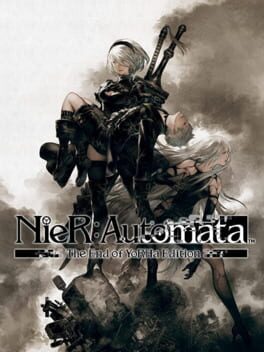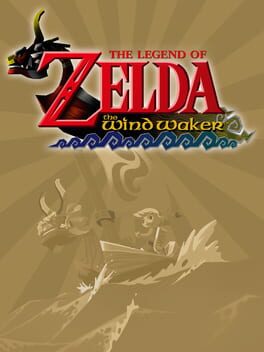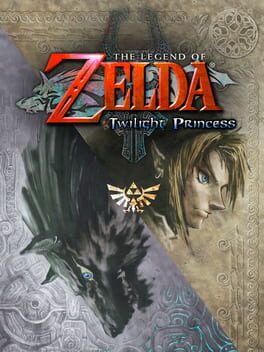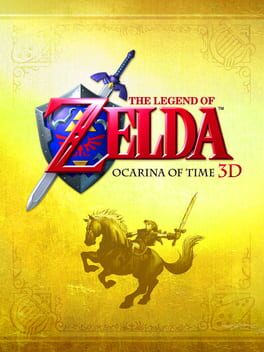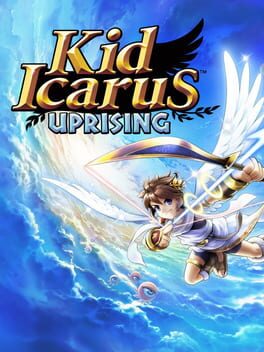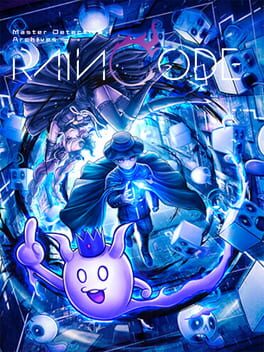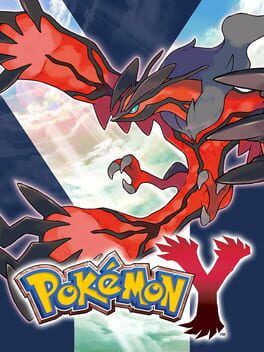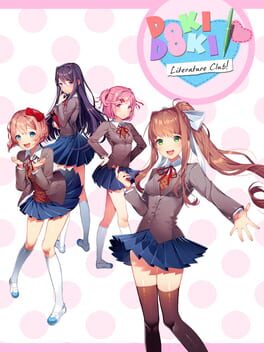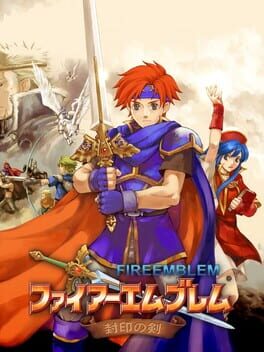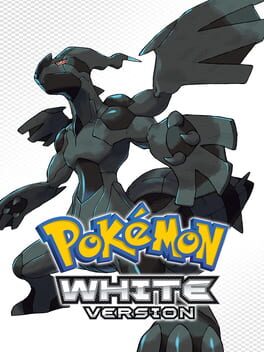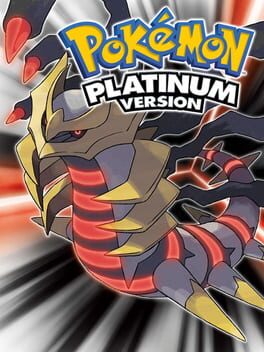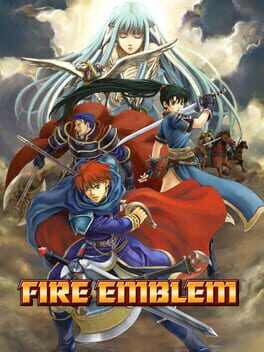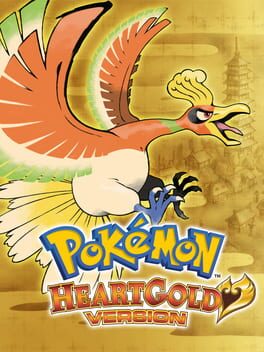manhasev
It's sad, but the main thing I am feeling having completed this game is disappointment. Nier Automata is frequently hailed as one of the greatest games to ever grace the medium, a masterpiece that swept the industry with countless awards and accolades to place in its trophy case, lauded by fans as perfection. I'm not here to take away from any of that at all, and I am certainly not here to say this game is garbage or anything, because it isn't. Nier Automata is a game that disappointed me because it was just good. Just fine. It's an ultimately solid game that left me expecting so much more.
The biggest thing that underwhelmed me about this game is actually playing it. The gameplay itself is unfortunately extremely dry and bare bones. I was shocked and still am shocked that an action game with the name "Platinum Games" in the credits has combat that isn't just dry, but barely even surpasses being serviceable. There is like, one or two combos in the game, everything feels super floaty and light, and my god, it's just a button mashing fest. It doesn't help that the enemies can be super spongey at times, so it just makes combat feel like a battle of attrition that I need to get through so I can experience the actual story rather than the core combat of the game. The hacking minigames are mostly a bore and something that I honestly would rather have not done at all, but I appreciate them including something to shake up the gameplay while you're controlling 9S, so, it gets a pass. I do like the plug-in chips system and the ways that you have some freedom in how you build your playstyle, as it actually can alleviate some of the issues with how spongey the enemies can be, but the dryness and shallowness of the combat is probably the biggest thing that had me expecting way more.
Before I get into what I thought about the story, which is probably the primary thing that Nier is lauded for, I want to dive into some of my more personal nitpicks with this game, and specifically with some of the ways that Yoko Taro approaches things. Do not let anyone fool you into thinking this is a game that has multiple "endings". The "endings" that people talk about in this game are actually not endings at all aside from the last few. Endings A and B are essentially chapter conclusions that do not serve as conclusions to the game at large, like, at all. All the other endings are just joke game over endings meant to score quirk points. Does any of this actually matter? Not really, no, but it's just something I can't wrap my head around. Why are these "endings" telling the player that the game is over with a roll of the credits when it is in fact not even close to being over? What is the point with having all of these endings when the game is actually supposed to be experienced from endings A to E in a cohesive fashion? I don't see a reason for structuring your game in this way. This isn't really something I can actually knock the game for but it was on my mind a lot so I wanted to say it.
The story is... good. I really love the characters and the palpable amount of struggle we feel them all go through as they change and adapt to what they learn about the world, but I think the story itself hits bumps and potholes along the way to its conclusion. The middle of the game after routes A and B conclude is exceptionally good, with a ton of tension being released as some huge plot twists occur and a pretty gut wrenching final sequence before we are met with "ending" C and the beginning of the final act of the game. Moments like ending C showcase what Nier is best at: applying the gamey-ness of a video game to a story and letting them amplify each other. In other words, the experience that the story is telling in that moment is made so much more powerful by the fact that you, the player, are experiencing it in a way that is made so much more immersive by the mechanics of the game. Again, Nier excels at this in so many different moments, and it is those moments that made this game really start to click with me. But there is an equal measure of moments where the story is too on the nose, or too scattered, or just plain shallow that make me feel so mixed on the plot. The final routes of the game have some incredible building tension as we ascend towards the final fight and ultimate conclusion of the game - but the events that happen in the final location feel rushed, out of left field, even a little bit sloppy sometimes. The antagonist is terribly undercooked and the conclusion, while somewhat powerful, left me with more of a feeling of "oh, that was it?" than anything else. The good thing about this game is that the themes of it are impossible to miss, so there's no way that Yoko Taro's ideas can be lost on you. The bad thing about this game is that the themes of it are IMPOSSIBLE TO MISS because the characters will basically tell you to your face what you are supposed to be feeling or learning with all the subtlety of a shonen anime character's monologue, wiping away much of the early intrigue and emotional payoff for events that should be tugging at my heartstrings.
The best way I can describe this game is as a really, really excellent third or fourth draft of a video game. The combat has good aspects, the story has a spectacular cast, powerful themes, there's a beautiful soundtrack and art direction, and a really strong emotional backbone to build the plot off of. But it's dry. Disconnected in places. It needs editing, proofreading, some fine tuning in some really critical places before it's wrapped up and shipped off. There are highs that feel like an absolutely euphoric grand slam to win the world series and lows that feel like you're on the wrong end of a despair-inducing no-hitter. Bad game? No way. But this one needed some extra work.
The biggest thing that underwhelmed me about this game is actually playing it. The gameplay itself is unfortunately extremely dry and bare bones. I was shocked and still am shocked that an action game with the name "Platinum Games" in the credits has combat that isn't just dry, but barely even surpasses being serviceable. There is like, one or two combos in the game, everything feels super floaty and light, and my god, it's just a button mashing fest. It doesn't help that the enemies can be super spongey at times, so it just makes combat feel like a battle of attrition that I need to get through so I can experience the actual story rather than the core combat of the game. The hacking minigames are mostly a bore and something that I honestly would rather have not done at all, but I appreciate them including something to shake up the gameplay while you're controlling 9S, so, it gets a pass. I do like the plug-in chips system and the ways that you have some freedom in how you build your playstyle, as it actually can alleviate some of the issues with how spongey the enemies can be, but the dryness and shallowness of the combat is probably the biggest thing that had me expecting way more.
Before I get into what I thought about the story, which is probably the primary thing that Nier is lauded for, I want to dive into some of my more personal nitpicks with this game, and specifically with some of the ways that Yoko Taro approaches things. Do not let anyone fool you into thinking this is a game that has multiple "endings". The "endings" that people talk about in this game are actually not endings at all aside from the last few. Endings A and B are essentially chapter conclusions that do not serve as conclusions to the game at large, like, at all. All the other endings are just joke game over endings meant to score quirk points. Does any of this actually matter? Not really, no, but it's just something I can't wrap my head around. Why are these "endings" telling the player that the game is over with a roll of the credits when it is in fact not even close to being over? What is the point with having all of these endings when the game is actually supposed to be experienced from endings A to E in a cohesive fashion? I don't see a reason for structuring your game in this way. This isn't really something I can actually knock the game for but it was on my mind a lot so I wanted to say it.
The story is... good. I really love the characters and the palpable amount of struggle we feel them all go through as they change and adapt to what they learn about the world, but I think the story itself hits bumps and potholes along the way to its conclusion. The middle of the game after routes A and B conclude is exceptionally good, with a ton of tension being released as some huge plot twists occur and a pretty gut wrenching final sequence before we are met with "ending" C and the beginning of the final act of the game. Moments like ending C showcase what Nier is best at: applying the gamey-ness of a video game to a story and letting them amplify each other. In other words, the experience that the story is telling in that moment is made so much more powerful by the fact that you, the player, are experiencing it in a way that is made so much more immersive by the mechanics of the game. Again, Nier excels at this in so many different moments, and it is those moments that made this game really start to click with me. But there is an equal measure of moments where the story is too on the nose, or too scattered, or just plain shallow that make me feel so mixed on the plot. The final routes of the game have some incredible building tension as we ascend towards the final fight and ultimate conclusion of the game - but the events that happen in the final location feel rushed, out of left field, even a little bit sloppy sometimes. The antagonist is terribly undercooked and the conclusion, while somewhat powerful, left me with more of a feeling of "oh, that was it?" than anything else. The good thing about this game is that the themes of it are impossible to miss, so there's no way that Yoko Taro's ideas can be lost on you. The bad thing about this game is that the themes of it are IMPOSSIBLE TO MISS because the characters will basically tell you to your face what you are supposed to be feeling or learning with all the subtlety of a shonen anime character's monologue, wiping away much of the early intrigue and emotional payoff for events that should be tugging at my heartstrings.
The best way I can describe this game is as a really, really excellent third or fourth draft of a video game. The combat has good aspects, the story has a spectacular cast, powerful themes, there's a beautiful soundtrack and art direction, and a really strong emotional backbone to build the plot off of. But it's dry. Disconnected in places. It needs editing, proofreading, some fine tuning in some really critical places before it's wrapped up and shipped off. There are highs that feel like an absolutely euphoric grand slam to win the world series and lows that feel like you're on the wrong end of a despair-inducing no-hitter. Bad game? No way. But this one needed some extra work.
I don't really feel like writing a lengthy review like I did last time for Twilight Princess, but this is a brilliant experience. A Zelda world that I actually felt like exploring every nook and cranny of is an excellent indicator of me really, REALLY enjoying something. The world is such a blast to discover. Dungeons are quick and succinct with really solid theming and bosses that mostly hit the mark. The story is a very bold step in a totally new direction for Zelda while still maintaining the classic Zelda magic and whimsy. The things that people hate this game for (slow sailing, triforce quest) are honestly really not that bad? If you experience this game earnestly and honestly try to explore discover the goodies this world has to offer throughout the entirety of the game (instead of just doing a collectathon in the end of everything), it ends up being really not that excruciating - at best, it's a fun (if tedious) romp around the world to see what you can discover with Link's full kit, and at worst it's an annoyance before the end of the game. The only thing I can knock this game for is some of the more cryptic aspects of exploration and the fact that you have to have so many rupees for endgame, but I can't complain about much else when this world is so inviting and open to freely explore.
Respect is the word I would use to describe this game best. Respect for the past of Zelda, yet respect for the need to move past Ocarina of Time's influence and try something new, respect for the intelligence and memory of the player, and respect for creativity in art style and world design. However, there is a bit of a lack of respect for the player's time. Still, this is a brilliantly fun Zelda experience that has aged so, so gracefully, especially in the visual department. If I played Wind Waker HD I think this might have been a 10 for the quality of life improvements.
Respect is the word I would use to describe this game best. Respect for the past of Zelda, yet respect for the need to move past Ocarina of Time's influence and try something new, respect for the intelligence and memory of the player, and respect for creativity in art style and world design. However, there is a bit of a lack of respect for the player's time. Still, this is a brilliantly fun Zelda experience that has aged so, so gracefully, especially in the visual department. If I played Wind Waker HD I think this might have been a 10 for the quality of life improvements.
Picture this: the year is 2004. You're a 16 year old boy who loves video games. The last Legend of Zelda game to release was the GameCube's Wind Waker. A fine game, but certainly far too "kiddy" with its cartoonish style, and certainly not a style that diehard Zelda players wanted to see again. No, Zelda fans wanted something dark and gritty to wash the taste of the childish "Celda" from their mouths. In a time where Nintendo had fallen out of favor of mainstream gamers with their niche, gimmicky lunchbox console with games for babies, they desperately needed to come out with something that would sway your friends at the school lunch table into thinking that Zelda was, in fact, a game for big boys. Enter E3 2004: Nintendo announces the newest game in the Zelda series, and it looks badass. Link looks realistic and the graphics look so dark and gritty. He's fighting dudes on a horse and mowing down dudes left and right, and holy shit did that say blades will BLEED? IS THERE GONNA BE BLOOD IN A ZELDA GAME? THIS RULES!
Needless to say, if you're a Nintendo fan, you know this trailer. The moment is completely electric, and who doesn't love seeing Miyamoto come out with the Master Sword and Hylian Shield? Revisiting this moment in Nintendo's history is a big part of understanding the thesis of Twilight Princess. It came in a time where Nintendo was beginning to realize that they might not be the top dog on the block anymore. Despite being among the most beloved games in Nintendo's entire library now, Wind Waker's rather annoyed reception back in 2003 was a product of a fanbase that felt belittled, almost as if they needed reassurance that they were on the right team. Nintendo won't be beaten by Sony or Microsoft, right? They can make something for adults, surely? For that reason, Twilight Princess might be the first game to ever be a direct product of peer pressure. They were gonna deliver the mature game that the fans wanted. It was gonna be dark and gritty and bloody and badass, hell yeah...
And then the game came out and people were subjected to herding goats and doing chores for the first three hours of playing.
Yeah, Twilight Princess makes a pretty rotten first impression, even when the weight of being "The Dark Zelda Game" has dissipated at this point. Being forced to tend to the village errand list for the first hour or so is bad enough, but after that, Link is relegated to Wolf Link form for the next hour and change. This is interesting initially and presents a ton of intrigue within the story, as it's a huge twist and comes with a shocking and explosive shift in tone, but once the intrigue has worn off, you're still plodding along and jumping about as a wolf, and worse yet, your primary task is a scavenger hunt to find drops of light and restore an area to its former normalcy. What the hell?
I understood later that this intro serves the game's thematic elements exceptionally well. But man, it's pretty dreadful to go through. This applies to all Wolf Link sections until the midway point of the game. A new form for the player character to transform into is a fine idea, but was the best application they could come up for this really just... a scavenger hunt for drops of light? More sluggish chores? Three damn times? It brings into question whether or not the inclusion of Wolf Link in this game was even really necessary to adding anything to the experience, or if it was perhaps just another effort to make the game appear grittier and darker. Every section that you use it in seems rushed and abbreviated to the point where I wished there was some way to skip them. I think Wolf Link could have been really brilliant if there had perhaps been a boss and perhaps a mini dungeon for each area instead of the scavenger hunts that do nothing outside of waste your time. The way it is utilized in dungeons for the second half of the game where you can freely transform back and forth (rather quickly I might add, which is nice) is much better, but it still feels tacked on and VERY undercooked.
Regardless, Twilight Princess hits its stride about halfway through the game. Getting the Master Sword is a pretty brilliant sequence, but the dungeons that follow are superb. This game has what is perhaps the tightest, most focused and succinct dungeons in the entire series. Each one has an excellent theme and atmosphere and I personally think the more ambient tunes fit them exceptionally well. None of them overstay their welcome either - each one has a great sense of momentum and progress. My personal favorite is the Temple of Time. It's shorter, and essentially a straight line, but the multipurpose nature of each room is made apparent once you get the Dominion Rod. Making your way back through the same halls with your little statue buddy is undeniably awesome. On a similar note, most of all, the items are bar none my favorite in any Zelda game. While they don't get as much use outside of those dungeons, which is unfortunate, what you do get inside the dungeons and boss battles is super fun and extremely creative.
What I think Twilight Princess excels at (and what Nintendo was REALLY trying to accomplish) is being cinematic. There's nothing brilliantly designed or absolutely revolutionary about Twilight Princess in the same way that, say, Ocarina of Time is, but everything about this game just oozes style. The items you get are all creative, yes, but each one is so... dramatic. The ball and chain is a gigantic clobbering weapon that takes a ton of windup. The spinner is a damn beyblade that you can scale tracks with. The double clawshots make you into a dynamic spider-person. The dominion rod allows you to control statues. Each one seems to have this flair in practice that isn't found in other Zelda games. The bosses are especially cinematic. While none of them were even remotely challenging, they all employed fantastic set pieces and dramatic methods of attack. The raging Fyrus requires you to yank him down with his chains; the titanic Morpheel involves Link grappling onto its eye to stab it over and over; Armogohma is defeated by the hammers of gigantic statues; Argorok has to be taken down as Link grapples through the sky and onto its back with the clawshots. It feels like Nintendo was really trying to capture the drama at every possible opportunity. That isn't even mentioning the multiple battles that Link takes part in on horseback, including a dramatic jousting match on a picturesque bridge. The realistic graphics and dark color palette were intentional, yes, but the real meat of Twilight Princess' thesis lies in the commitment to making everything feel cinematic and bold.
Did Nintendo succeed in reestablishing their brand as "The Guys Who Can Make A Dark And Gritty Zelda Game"? I mean, sure, but that isn't even what they really aimed to do here. It's what the fans wanted, and I'm sure many people who played this in 2006 felt as if it was the Zelda game of their dark and edgy dreams (after they finished herding goats, of course), but I think this is a far less ambitious title than people like to say. It's a superb Zelda game once you trim the fat of the unwarranted tedium of the Wolf Link sections, one that immerses you in the adventure of Link by way of making it feel as grandiose as possible. This game's ending embodies this philosophy most of all. A four phase war against the Great King of Evil reborn, Ganondorf, which ends with a one on one duel to the death amidst lightning and dark skies out in Hyrule Field, grappling with destiny as all of the callbacks to Ocarina of Time throughout the game have laid out the subtext of Hyrule's circular history repeating itself evermore. It's perfect for the tone of Twilight Princess and one of my personal favorite conclusions to any video game.
This review obviously glazed over a ton of key facts about Twilight Princess. The story is one of Zelda's strongest, and the character arc of Midna, everyone's favorite companion character, is probably the best in the entire series; the combat (which, of course, also commits to being bold and flashy and cinematic) that allows Link to pull off a handful of fancy maneuvers to fell enemies is a blast; and I love the fact that this game is essentially a spiritual successor to Ocarina of Time, employing some excellent callbacks and references without being overbearing. Nintendo succeeded in their quest, and despite not really doing anything to push the Zelda series or formula into the future, it still stands as a key step in the journey of 3D Zelda. It's a shame that the Wolf Link sections weigh on my mind so negatively, but otherwise, this is easily one of Zelda's strongest titles.
Needless to say, if you're a Nintendo fan, you know this trailer. The moment is completely electric, and who doesn't love seeing Miyamoto come out with the Master Sword and Hylian Shield? Revisiting this moment in Nintendo's history is a big part of understanding the thesis of Twilight Princess. It came in a time where Nintendo was beginning to realize that they might not be the top dog on the block anymore. Despite being among the most beloved games in Nintendo's entire library now, Wind Waker's rather annoyed reception back in 2003 was a product of a fanbase that felt belittled, almost as if they needed reassurance that they were on the right team. Nintendo won't be beaten by Sony or Microsoft, right? They can make something for adults, surely? For that reason, Twilight Princess might be the first game to ever be a direct product of peer pressure. They were gonna deliver the mature game that the fans wanted. It was gonna be dark and gritty and bloody and badass, hell yeah...
And then the game came out and people were subjected to herding goats and doing chores for the first three hours of playing.
Yeah, Twilight Princess makes a pretty rotten first impression, even when the weight of being "The Dark Zelda Game" has dissipated at this point. Being forced to tend to the village errand list for the first hour or so is bad enough, but after that, Link is relegated to Wolf Link form for the next hour and change. This is interesting initially and presents a ton of intrigue within the story, as it's a huge twist and comes with a shocking and explosive shift in tone, but once the intrigue has worn off, you're still plodding along and jumping about as a wolf, and worse yet, your primary task is a scavenger hunt to find drops of light and restore an area to its former normalcy. What the hell?
I understood later that this intro serves the game's thematic elements exceptionally well. But man, it's pretty dreadful to go through. This applies to all Wolf Link sections until the midway point of the game. A new form for the player character to transform into is a fine idea, but was the best application they could come up for this really just... a scavenger hunt for drops of light? More sluggish chores? Three damn times? It brings into question whether or not the inclusion of Wolf Link in this game was even really necessary to adding anything to the experience, or if it was perhaps just another effort to make the game appear grittier and darker. Every section that you use it in seems rushed and abbreviated to the point where I wished there was some way to skip them. I think Wolf Link could have been really brilliant if there had perhaps been a boss and perhaps a mini dungeon for each area instead of the scavenger hunts that do nothing outside of waste your time. The way it is utilized in dungeons for the second half of the game where you can freely transform back and forth (rather quickly I might add, which is nice) is much better, but it still feels tacked on and VERY undercooked.
Regardless, Twilight Princess hits its stride about halfway through the game. Getting the Master Sword is a pretty brilliant sequence, but the dungeons that follow are superb. This game has what is perhaps the tightest, most focused and succinct dungeons in the entire series. Each one has an excellent theme and atmosphere and I personally think the more ambient tunes fit them exceptionally well. None of them overstay their welcome either - each one has a great sense of momentum and progress. My personal favorite is the Temple of Time. It's shorter, and essentially a straight line, but the multipurpose nature of each room is made apparent once you get the Dominion Rod. Making your way back through the same halls with your little statue buddy is undeniably awesome. On a similar note, most of all, the items are bar none my favorite in any Zelda game. While they don't get as much use outside of those dungeons, which is unfortunate, what you do get inside the dungeons and boss battles is super fun and extremely creative.
What I think Twilight Princess excels at (and what Nintendo was REALLY trying to accomplish) is being cinematic. There's nothing brilliantly designed or absolutely revolutionary about Twilight Princess in the same way that, say, Ocarina of Time is, but everything about this game just oozes style. The items you get are all creative, yes, but each one is so... dramatic. The ball and chain is a gigantic clobbering weapon that takes a ton of windup. The spinner is a damn beyblade that you can scale tracks with. The double clawshots make you into a dynamic spider-person. The dominion rod allows you to control statues. Each one seems to have this flair in practice that isn't found in other Zelda games. The bosses are especially cinematic. While none of them were even remotely challenging, they all employed fantastic set pieces and dramatic methods of attack. The raging Fyrus requires you to yank him down with his chains; the titanic Morpheel involves Link grappling onto its eye to stab it over and over; Armogohma is defeated by the hammers of gigantic statues; Argorok has to be taken down as Link grapples through the sky and onto its back with the clawshots. It feels like Nintendo was really trying to capture the drama at every possible opportunity. That isn't even mentioning the multiple battles that Link takes part in on horseback, including a dramatic jousting match on a picturesque bridge. The realistic graphics and dark color palette were intentional, yes, but the real meat of Twilight Princess' thesis lies in the commitment to making everything feel cinematic and bold.
Did Nintendo succeed in reestablishing their brand as "The Guys Who Can Make A Dark And Gritty Zelda Game"? I mean, sure, but that isn't even what they really aimed to do here. It's what the fans wanted, and I'm sure many people who played this in 2006 felt as if it was the Zelda game of their dark and edgy dreams (after they finished herding goats, of course), but I think this is a far less ambitious title than people like to say. It's a superb Zelda game once you trim the fat of the unwarranted tedium of the Wolf Link sections, one that immerses you in the adventure of Link by way of making it feel as grandiose as possible. This game's ending embodies this philosophy most of all. A four phase war against the Great King of Evil reborn, Ganondorf, which ends with a one on one duel to the death amidst lightning and dark skies out in Hyrule Field, grappling with destiny as all of the callbacks to Ocarina of Time throughout the game have laid out the subtext of Hyrule's circular history repeating itself evermore. It's perfect for the tone of Twilight Princess and one of my personal favorite conclusions to any video game.
This review obviously glazed over a ton of key facts about Twilight Princess. The story is one of Zelda's strongest, and the character arc of Midna, everyone's favorite companion character, is probably the best in the entire series; the combat (which, of course, also commits to being bold and flashy and cinematic) that allows Link to pull off a handful of fancy maneuvers to fell enemies is a blast; and I love the fact that this game is essentially a spiritual successor to Ocarina of Time, employing some excellent callbacks and references without being overbearing. Nintendo succeeded in their quest, and despite not really doing anything to push the Zelda series or formula into the future, it still stands as a key step in the journey of 3D Zelda. It's a shame that the Wolf Link sections weigh on my mind so negatively, but otherwise, this is easily one of Zelda's strongest titles.
2023
Final Fantasy XVI is my first fully finished foray into the series for myself, and it was a complete blast. I had no real expectations for this going in but I was pretty floored with what I ended up with. First of all, this is an incredibly well written and soulful story with lovely characters (outside of the villain) and a deep, engrossing world. I absolutely loved Clive and his journey through the story.
The gameplay here is breezy action combat, which is obviously a big departure from FF's turn based roots, but I think it is implemented really well here. I am a big fan of the cycling magic/skill system and I think it allows for a ton of customization with different loadouts making for some super fun combos as you can quickly swap from set to set. The basic moves themselves are a pretty solid skillset on their own, and Clive's movements feel like they are fast but weighty and hard-hitting too. You can do some pretty dope stuff in this game, and of course, the Eikon fights are a marvel to watch unfold. Some of the highlights of the game are these utterly insane monster fights where the drama and action is turned up to infinity.
The only gripe I have with actually playing the game is the fact that, even though the world is interesting and well-built in the narrative, the actual level design is pretty one-way and doesn't offer a ton in the way of exploring, unless it's in the form of errand-like quests in which you have to fetch endless items for minimal return on investment. Ultimately, the quests are saved by the Notorious Mark hunts, which are rare monsters found all across the world that drop good loot and raise your renown, in turn rewarding you with prizes. The fights are usually just modified bosses or suped up enemies from other parts of the game, but they're a pretty thrilling time altogether, especially the A and S rank hunts.
Speaking of which, the bosses in this game are completely incredible. Every single one feels like the most exciting thing in the game to that point, and every subsequent one just ups the ante and excitement by a factor of ten compared to whatever one just happened last. It can feel like the game throws a ton of them in a row at you sometimes, but the major bosses against the other Eikon Dominants absolutely did not disappoint in any category. Each one was a tense fight with story stakes and excellent visuals and sound to fully complete the moment.
I think if there was one more complaint I could muster about this game, it's the last third's pace. After a certain huge plot point unfolds and it feels as if the game is about to go hurtling towards the conclusion, it comes to a screeching halt with a long series of super tedious, super dull fetch/"kill these enemies" main story quests that definitely feel like padding in a game that had otherwise been very well paced to that point. It made the last 15 or so hours feel like a drag, and caused the journey to the final areas and last few bosses to feel a little more arduous than it needed to be.
Ultimately, I had a really fun time with FFXVI. The combat is fresh, I was easily invested in the story right from the extremely dynamic prologue, the game looks absolutely goddamn stunning, the soundtrack is incredible and absolutely deserved its recognition at The Game Awards, and my god, the voice cast did a spectacular job. There are some hiccups and some flaws, but this was a great time and I can't wait to explore more of the series.
Ily Dion Lesage
The gameplay here is breezy action combat, which is obviously a big departure from FF's turn based roots, but I think it is implemented really well here. I am a big fan of the cycling magic/skill system and I think it allows for a ton of customization with different loadouts making for some super fun combos as you can quickly swap from set to set. The basic moves themselves are a pretty solid skillset on their own, and Clive's movements feel like they are fast but weighty and hard-hitting too. You can do some pretty dope stuff in this game, and of course, the Eikon fights are a marvel to watch unfold. Some of the highlights of the game are these utterly insane monster fights where the drama and action is turned up to infinity.
The only gripe I have with actually playing the game is the fact that, even though the world is interesting and well-built in the narrative, the actual level design is pretty one-way and doesn't offer a ton in the way of exploring, unless it's in the form of errand-like quests in which you have to fetch endless items for minimal return on investment. Ultimately, the quests are saved by the Notorious Mark hunts, which are rare monsters found all across the world that drop good loot and raise your renown, in turn rewarding you with prizes. The fights are usually just modified bosses or suped up enemies from other parts of the game, but they're a pretty thrilling time altogether, especially the A and S rank hunts.
Speaking of which, the bosses in this game are completely incredible. Every single one feels like the most exciting thing in the game to that point, and every subsequent one just ups the ante and excitement by a factor of ten compared to whatever one just happened last. It can feel like the game throws a ton of them in a row at you sometimes, but the major bosses against the other Eikon Dominants absolutely did not disappoint in any category. Each one was a tense fight with story stakes and excellent visuals and sound to fully complete the moment.
I think if there was one more complaint I could muster about this game, it's the last third's pace. After a certain huge plot point unfolds and it feels as if the game is about to go hurtling towards the conclusion, it comes to a screeching halt with a long series of super tedious, super dull fetch/"kill these enemies" main story quests that definitely feel like padding in a game that had otherwise been very well paced to that point. It made the last 15 or so hours feel like a drag, and caused the journey to the final areas and last few bosses to feel a little more arduous than it needed to be.
Ultimately, I had a really fun time with FFXVI. The combat is fresh, I was easily invested in the story right from the extremely dynamic prologue, the game looks absolutely goddamn stunning, the soundtrack is incredible and absolutely deserved its recognition at The Game Awards, and my god, the voice cast did a spectacular job. There are some hiccups and some flaws, but this was a great time and I can't wait to explore more of the series.
Ily Dion Lesage
Ocarina of Time is a landmark game for the entire video game industry. For a first step into 3D game design, this is unbelievable. Staples of game design that are now foundational pieces of the way that we experience games in the third dimension basically all got their start in this game. Things that we take for granted, like targeting systems and context sensitive button commands, which seem really basic now, all revolutionized the way that games could envelop a player into an experience seamlessly. The story is also a complete classic that doesn't get enough credit in the grander scheme of Zelda narratives. The subtlety and maturity with which this game handles its primary themes is really quite special, and it totally makes sense that so many people would associate this game with their childhoods in that respect. Visually, the 3DS version of this looks and runs great too.
It's unfortunate that I didn't have as fun of a time with this game as I was expecting. I've never truly finished Ocarina of Time to the very end, and I guess now it kind of makes sense to me in terms of why that is for me personally. Despite how important this game is to the industry that I love, I have to take issue with some aspects of it. While I'm sure it was huge at time of release, the overworld in this game is painfully bleak and empty. Hyrule field and the surrounding areas that serve as connectors to the main areas of the game may as well be glorified loading screens, as it feels like I'm doing nothing but pressing up on my circle pad and smashing the A button between dungeons. I understand that there are plenty of unique goodies scattered across each section of the world, but I seriously can't be bothered to seek them out when the movement of this game is so god damn slow in addition to the empty nature of the world.
The dungeons in this game are great, with the only real stinker being Jabu-Jabu's Belly, which is a terribly frustrating exercise in tedium. Other than that, the puzzles within each dungeon were excellent explorations of 3D space that stretched my brain consistently. Most of the bosses are complete garbage though, I'm not gonna lie. Whether they are hilariously easy or just really goddamn annoying is pretty much a coinflip for any given dungeon. Lastly, the combat in this game, while fun, can feel like a serious chore against a lot of the enemies that don't fight back very much yet can only be damaged when they let their guard down to attack. This results in waiting... a whole lot of waiting in combat. Stalfos are easily the worst offender as you can stand completely still for what feels like goddamn hours without them as much as moving a muscle. As a result, it really feels like combat is a weak point in this entry despite the fact that Link can use one of my favorite arsenals of items in any Zelda game.
The music and atmosphere of this game is next level though. This is a bit of a side note, but I wish Zelda would go back to putting deadass creepy shit in their games like the Bottom of the Well and the Shadow Temple; those areas are just dripping in atmosphere, and the same goes for other areas and dungeons like the Water Temple and Forest Temple.
Ultimately, I commend this game for being such a bold step into a brand-new dimension of gaming and being such a resounding success despite how badly something like this could have turned out; Nintendo absolutely knocked it out of the park and defined the entire future of gaming. It's just unfortunate that it seems to be showing a bit of its age in terms of scope and combat.
It's unfortunate that I didn't have as fun of a time with this game as I was expecting. I've never truly finished Ocarina of Time to the very end, and I guess now it kind of makes sense to me in terms of why that is for me personally. Despite how important this game is to the industry that I love, I have to take issue with some aspects of it. While I'm sure it was huge at time of release, the overworld in this game is painfully bleak and empty. Hyrule field and the surrounding areas that serve as connectors to the main areas of the game may as well be glorified loading screens, as it feels like I'm doing nothing but pressing up on my circle pad and smashing the A button between dungeons. I understand that there are plenty of unique goodies scattered across each section of the world, but I seriously can't be bothered to seek them out when the movement of this game is so god damn slow in addition to the empty nature of the world.
The dungeons in this game are great, with the only real stinker being Jabu-Jabu's Belly, which is a terribly frustrating exercise in tedium. Other than that, the puzzles within each dungeon were excellent explorations of 3D space that stretched my brain consistently. Most of the bosses are complete garbage though, I'm not gonna lie. Whether they are hilariously easy or just really goddamn annoying is pretty much a coinflip for any given dungeon. Lastly, the combat in this game, while fun, can feel like a serious chore against a lot of the enemies that don't fight back very much yet can only be damaged when they let their guard down to attack. This results in waiting... a whole lot of waiting in combat. Stalfos are easily the worst offender as you can stand completely still for what feels like goddamn hours without them as much as moving a muscle. As a result, it really feels like combat is a weak point in this entry despite the fact that Link can use one of my favorite arsenals of items in any Zelda game.
The music and atmosphere of this game is next level though. This is a bit of a side note, but I wish Zelda would go back to putting deadass creepy shit in their games like the Bottom of the Well and the Shadow Temple; those areas are just dripping in atmosphere, and the same goes for other areas and dungeons like the Water Temple and Forest Temple.
Ultimately, I commend this game for being such a bold step into a brand-new dimension of gaming and being such a resounding success despite how badly something like this could have turned out; Nintendo absolutely knocked it out of the park and defined the entire future of gaming. It's just unfortunate that it seems to be showing a bit of its age in terms of scope and combat.
Wow, this is about as good as it gets for visual novels, folks. 13 Sentinels is quite the special game. A plot as complex and with as many moving pieces as this should not work at all, and not only is it functional and sensical by the end, it is also completely enthralling and brain racking for the entire duration of the game. Not one moment passed while I was playing this game where I was bored of the story or thought that something happening was stupid. I completely bought into the narrative from the jump and was rewarded with the most twisty and turny and most exciting and mysterious visual novel adventure I've ever gotten to play.
The proper gameplay might be the only place where 13 Sentinels hits a bit of a speedbump, but I honestly loved the mech fights. I love strategy games, and this is no exception. The fights might be a bit on the easy side (save for a few that had me scrambling) but man are they a joy to get through. Each sentinel type has enough unique skills and variable abilities to make each character's playstyle somewhat distinct. I wish it was a bit more visually engaging, but there's not much that can be done there with an RTS emphasis. Mowing down bad guys with the missile rain skill gets this game extra points.
The soundtrack is filled with great atmospheric tunes and some serious bangers for the combat stages. Vanillaware's art is beautiful. The story is filled with so much soul and attention to detail that it would be disrespectful to not give it the recognition it deserves. Go play this game right now. 13 Sentinels is the definition of a hidden gem. This really feels like one of those games that I'll wish I could experience for the first time again.
Ei Sekigoathara and Nenji Ogoata on top
The proper gameplay might be the only place where 13 Sentinels hits a bit of a speedbump, but I honestly loved the mech fights. I love strategy games, and this is no exception. The fights might be a bit on the easy side (save for a few that had me scrambling) but man are they a joy to get through. Each sentinel type has enough unique skills and variable abilities to make each character's playstyle somewhat distinct. I wish it was a bit more visually engaging, but there's not much that can be done there with an RTS emphasis. Mowing down bad guys with the missile rain skill gets this game extra points.
The soundtrack is filled with great atmospheric tunes and some serious bangers for the combat stages. Vanillaware's art is beautiful. The story is filled with so much soul and attention to detail that it would be disrespectful to not give it the recognition it deserves. Go play this game right now. 13 Sentinels is the definition of a hidden gem. This really feels like one of those games that I'll wish I could experience for the first time again.
Ei Sekigoathara and Nenji Ogoata on top
2012
This is overall a pretty solid mystery VN game, and people who liked Danganronpa may or may not like it. Personally, I think that it was a good time. A couple of these chapters are stinkers but overall the story is solid and there's a good and quirky cast of characters. Ending was great and easily the highlight of the experience, which is to be expected from a Danganronpa-adjacent game.
While I had a great time, I have to say that it was hard NOT to compare this to Danganronpa, because even though the gameplay and window dressing makes it distinct, the similarities are plentiful and obvious to fans.
The biggest flaw of Rain Code is just that the big twists and mysteries in general don't really hit the same highs and emotional punchiness and weight that I was expecting from a DR type game. While I understand that Kodaka didn't want to do death games and class trials again, it was absolutely the perfect setting for the type of angst and insanity that Danganronpa was always written with. Rain Code takes on a more fantastical tone, which is okay, but the Mystery Labyrinths where you'll spend most of your time are basically walking simulators. They aren't bad, and each one has enough visual distinctions to make them feel new, but I can't help but feel disappointed when I compare the dynamic, frenetic nature of Nonstop Debates to the more meandering gameplay of Mystery Labyrinths. The approach of walking-and-talking interspersed with minigames and one-on-one debates functions just fine but they feel disjointed and stilted at times in comparison.
In addition to this, the buildup and resolutions of some of the mysteries just felt a bit... hollow? And again, this goes back to me comparing things to Danganronpa (which is probably unfair to Rain Code), but having a set cast of 15 or so characters made the stakes of the mysteries feel so much higher and gave each story this super intimate feeling. The small lists of suspects we are given in a couple of the earlier chapters of Rain Code are characters we don't really have that much exposure to beforehand, and as a result the urgency of the resolution feels kinda... meh. There isn't that time to flesh out who they are and why they could be doing the things they are, and the lack of contact between the rest of the cast and these suspects makes the stakes feel low. Again, this is really only an issue for maybe a couple of chapters in the early goings, but still.
I think when it is most important, Rain Code sticks the landing. There are some technical issues that got a bit distracting, but it wasn't anything horrific (although I'm sure this would be ameliorated if this game got a release on a console other than Switch). I like the characters, the setting is cool, there is a great overarching mystery with plenty of intrigue, Masafumi Takada's soundtrack is magnificent as always, and the ending is terrific. I just feel like there was a lot more meat on the bone for improvement here in terms of really investing the player. I do hope that Kodaka continues to experiment with new styles of mystery VNs in this vein (but another Danganronpa someday wouldn't hurt).
While I had a great time, I have to say that it was hard NOT to compare this to Danganronpa, because even though the gameplay and window dressing makes it distinct, the similarities are plentiful and obvious to fans.
The biggest flaw of Rain Code is just that the big twists and mysteries in general don't really hit the same highs and emotional punchiness and weight that I was expecting from a DR type game. While I understand that Kodaka didn't want to do death games and class trials again, it was absolutely the perfect setting for the type of angst and insanity that Danganronpa was always written with. Rain Code takes on a more fantastical tone, which is okay, but the Mystery Labyrinths where you'll spend most of your time are basically walking simulators. They aren't bad, and each one has enough visual distinctions to make them feel new, but I can't help but feel disappointed when I compare the dynamic, frenetic nature of Nonstop Debates to the more meandering gameplay of Mystery Labyrinths. The approach of walking-and-talking interspersed with minigames and one-on-one debates functions just fine but they feel disjointed and stilted at times in comparison.
In addition to this, the buildup and resolutions of some of the mysteries just felt a bit... hollow? And again, this goes back to me comparing things to Danganronpa (which is probably unfair to Rain Code), but having a set cast of 15 or so characters made the stakes of the mysteries feel so much higher and gave each story this super intimate feeling. The small lists of suspects we are given in a couple of the earlier chapters of Rain Code are characters we don't really have that much exposure to beforehand, and as a result the urgency of the resolution feels kinda... meh. There isn't that time to flesh out who they are and why they could be doing the things they are, and the lack of contact between the rest of the cast and these suspects makes the stakes feel low. Again, this is really only an issue for maybe a couple of chapters in the early goings, but still.
I think when it is most important, Rain Code sticks the landing. There are some technical issues that got a bit distracting, but it wasn't anything horrific (although I'm sure this would be ameliorated if this game got a release on a console other than Switch). I like the characters, the setting is cool, there is a great overarching mystery with plenty of intrigue, Masafumi Takada's soundtrack is magnificent as always, and the ending is terrific. I just feel like there was a lot more meat on the bone for improvement here in terms of really investing the player. I do hope that Kodaka continues to experiment with new styles of mystery VNs in this vein (but another Danganronpa someday wouldn't hurt).
2013
A very solid Pokémon adventure that is much more robust than i remember. The only reason this isn’t higher is the fact that there is obviously cut/missing content in both the main story and postgame that clearly should be there. Pokémon Z needed to be a thing and there needed to be more event stuff etc, but I really think the story could have hit a lot harder if there was just more characterization of Lysandre and the rest of the cast. Overall, I can’t complain much; it’s a pokemon game. Kalos is definitely an underrated region, Mega Evolution is dope, soundtrack is great, and the new mons are good. Fun game. Also this game included dope trainer customization and stylish ass outfits which is genuinely actually one of the only reasons I still play Pokémon
In the six years since Doki Doki Literature Club released in 2017, it has become a mostly irrelevant game to the greater culture of gaming outside of some now rather dated references and memes. When I first played this game in high school, I was totally blown away, as I'm sure most other obtuse teenagers such as myself were. DDLC was unlike anything I'd ever seen in any kind of media. While its novelty has all but completely worn off in the handful of times I've replayed it since, its impact on me still rings true. The scares aren't scary anymore once you know how they work and when they come, but it is hard for me not to still be impressed by the complete inversion of my expectations that I experienced all those years ago, and knowing the twists and turns basically inside out by this point helps me to still appreciate it a little. If there is one thing I can give this game, it is that it's good at catching you off guard and dismantling your expectations pretty damn quickly after building them up for a comparably lengthy first act. The horror stuff is unfortunately pretty flat nowadays, but the end of the "normal" part of the game and all the buildup still gets my heart pumping unreasonably fast to this day, even as a grown man.
Truthfully, I've somehow become very attached to these characters in some way or another. It isn't really much at all, but I think there are bits and pieces of characterization that just... tug at my heartstrings. I know that's the whole point of the game as a sorta "gotcha" for dating sim players or whatever, but I'm a complete emotional sucker for these characters. Sue me. Having the side stories from the new release still freshly in my mind helps a little too. I will say that there is probably a better actual story somewhere if you extrapolated all the stuff from the first half, but it's quickly swept underneath all the stuff meant to be scary in the second half, which is kinda lame now. If DDLC actually fully leaned into being an earnest VN instead of an experiential one-time creepypasta in the second half, it could probably be exceptional.
It's not very replayable, it's derivative, it's not even all that scary to begin with, and perhaps I'm just holding onto nostalgia by this point, but this game captivated me back in 2017 and it's no different today. Even if it's not really anything special by this point, it's one of my most guilty pleasures, based on sentimental value alone.
TLDR Dan Salvato ruined my life forever when he created Yuri
Truthfully, I've somehow become very attached to these characters in some way or another. It isn't really much at all, but I think there are bits and pieces of characterization that just... tug at my heartstrings. I know that's the whole point of the game as a sorta "gotcha" for dating sim players or whatever, but I'm a complete emotional sucker for these characters. Sue me. Having the side stories from the new release still freshly in my mind helps a little too. I will say that there is probably a better actual story somewhere if you extrapolated all the stuff from the first half, but it's quickly swept underneath all the stuff meant to be scary in the second half, which is kinda lame now. If DDLC actually fully leaned into being an earnest VN instead of an experiential one-time creepypasta in the second half, it could probably be exceptional.
It's not very replayable, it's derivative, it's not even all that scary to begin with, and perhaps I'm just holding onto nostalgia by this point, but this game captivated me back in 2017 and it's no different today. Even if it's not really anything special by this point, it's one of my most guilty pleasures, based on sentimental value alone.
TLDR Dan Salvato ruined my life forever when he created Yuri
this could be the worst Fire Emblem game. the story is bland, none of the characters are very memorable and I have a hard time picking out the ones in my head that i really enjoyed using and investing in. Roy is really bad, the maps aren't great, and a ton of the characters are bad or straight up unusable. Zephiel is a great villain but the story truly is really really boring. not sure why they thought multiple endings for a Fire Emblem game was a great idea but it is way too easy to miss out on the true ending.
Binding Blade is very clearly inspired by Thracia 776, with a lot of the maps and design decisions being heavily (HEAVILY) reminiscent of what was done there. but, this game throws all the weird bullshit that Thracia expected you to deal with and doesn't give you someone like a Finn or Asbel or Mareeta to level the playing field with, and that's what made Thracia so fun to begin with. a lot of the mechanics that allowed you to sort of cheat Thracia's system are not present or heavily modified to be way less fun here. honestly this one just plain sucks and is really grating to play. way too many huge maps with giant hallways or movement reduction that take way too many turns with shit recruits.
if i will say anything good about this game its that it has Perceval Melady and Igrene who are all awesome. but outside of that this one is just blah.
Binding Blade is very clearly inspired by Thracia 776, with a lot of the maps and design decisions being heavily (HEAVILY) reminiscent of what was done there. but, this game throws all the weird bullshit that Thracia expected you to deal with and doesn't give you someone like a Finn or Asbel or Mareeta to level the playing field with, and that's what made Thracia so fun to begin with. a lot of the mechanics that allowed you to sort of cheat Thracia's system are not present or heavily modified to be way less fun here. honestly this one just plain sucks and is really grating to play. way too many huge maps with giant hallways or movement reduction that take way too many turns with shit recruits.
if i will say anything good about this game its that it has Perceval Melady and Igrene who are all awesome. but outside of that this one is just blah.
Pokemon's finest entry for a number of reasons and it's honestly not close. Every now and then there are moments in every pokemon game that really wow you and i would honestly have to say the last hour or so of this game is the peak of the series. There is nothing that will match how cinematic the last battle with N is when you both open with the legendaries followed up with Ghetsis. I've been tearing up at the ending of this game since I was like 10 and I probably will continue as long as I live
Didn't venture too much into the postgame outside of the events and a dabble of the Battle Frontier, but this is an entry that further solidifies how dominantly good the DS Pokemon era was. This game improves every issue I had with DP outside of the battle pace. One of the best main stories and absolutely the most lore rich and interesting region in the entire series. Even after Legends Arceus I wish they did more with all of the cool shit they came up with for this game. The main trio of legendaries is so interesting and just cool as hell for the scale of a little Pokemon game. Bangin OST, some pretty great mons, great story and characters... as good as I remembered.
Pretty good and solid Fire Emblem experience without too many crazy things to explain about it. I do love the main trio and there are some really great characters in the cast of units, but the story is mid. I appreciated some of the challenge that a lot of these maps brought but the final map was kinda cheapened by only really being able to use Athos and a couple other of the units that could use the legendary weapons. Ultimately this is a solid game with plenty of replay value but when set against the rest of this series it doesn't stand out much. Poor Eliwood gets the short end of the stick, his son owns him
definitely one of the best pokemon games, johto as a region is jank and has some shortcomings and i wish more of the new mons were readily available in the game, but the absolute amount of postgame content and the general coolness of being able to go to kanto and get 16 badges is just way too awesome. it was awesome when i was a kid and its awesome now. i enjoy the main story and the simplicity of the adventure, the ost is fucking awesome and this is just such a nostalgic game to me and it still holds up, brilliantly. the level curve in johto and some of the weird decisions do hold it back but this is such a fun game. classic pokemon at its absolute finest.
being a little ass kid and playing this game just completely nonstop when this was a new and fresh adventure is such a precious memory i have it nearly brings tears to my eyes, every single one of my friends and i played this game religiously. finding all the legendary pokemon secret goodies, doing the cool ass events, fighting Red (which is still the coolest thing in any pokemon game ever) or just messing around and playing the game normally i will never ever forget. needless to say they cooked
being a little ass kid and playing this game just completely nonstop when this was a new and fresh adventure is such a precious memory i have it nearly brings tears to my eyes, every single one of my friends and i played this game religiously. finding all the legendary pokemon secret goodies, doing the cool ass events, fighting Red (which is still the coolest thing in any pokemon game ever) or just messing around and playing the game normally i will never ever forget. needless to say they cooked
